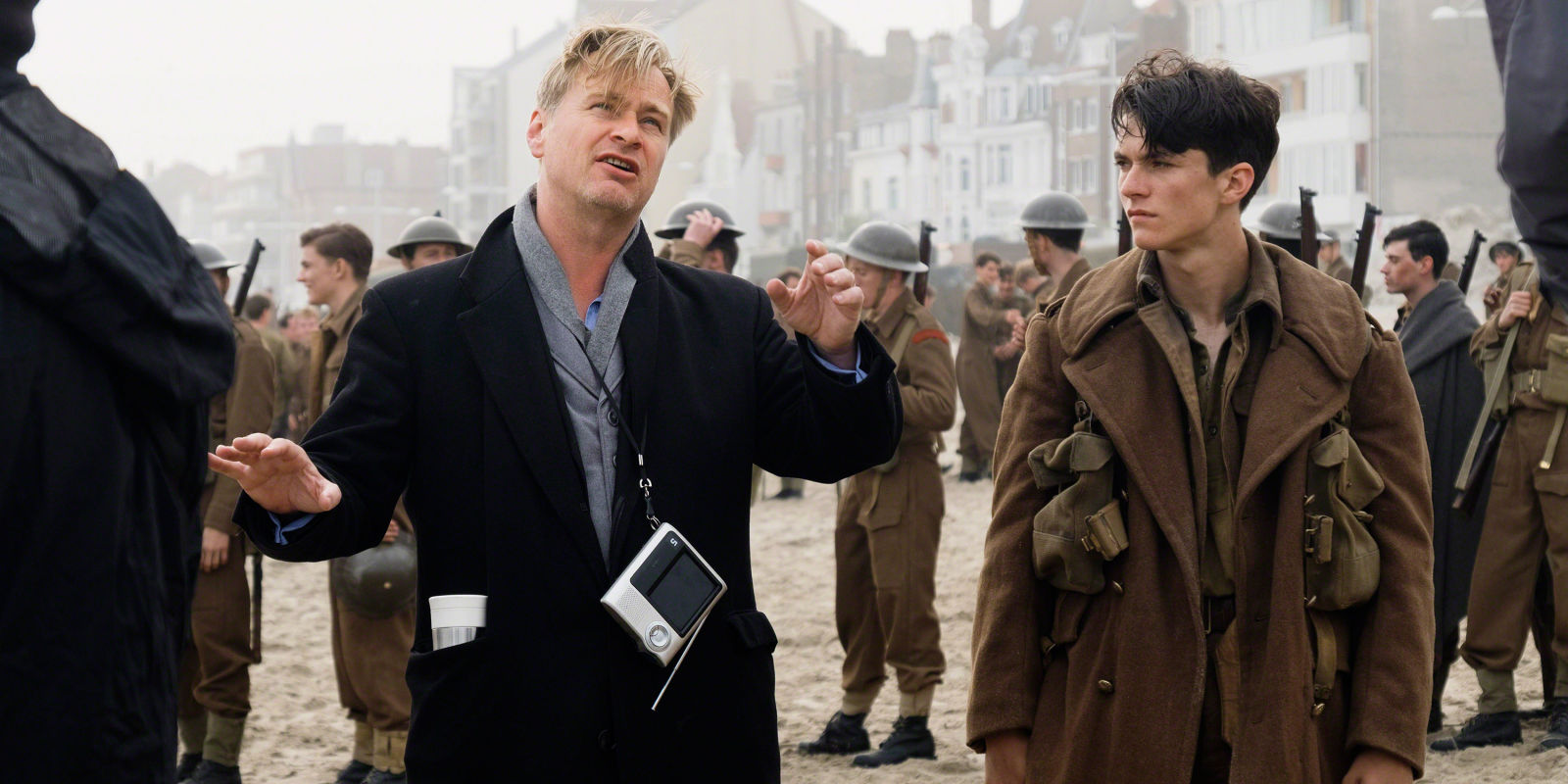Christopher Nolan‘s “Dunkirk” is a film designed around simplicity. The WWII movie is the blockbuster director’s leanest effort in years, offering maximum thrills and suspense with little dialogue and a premium on visual storytelling. However, pulling it all together is the terrific and taut score by the Nolan’s frequent collaborator Hans Zimmer.
Bringing the composer into the process very early, Nolan explained to Zimmer how he wanted the recording of his ticking watch to serve as the foundation for aural soundscape of “Dunkirk.”
“The screenplay had been written according to musical principals. There’s an audio illusion, if you will, in music called a ‘Shepard tone‘ and with my composer David Julyan on ‘The Prestige‘ we explored that and based a lot of the score around that. And it’s an illusion where there’s a continuing ascension of tone. It’s a corkscrew effect. It’s always going up and up and up but it never goes outside of its range. And I wrote the script according to that principle,” the director revealed earlier this year. “I interwove the three timelines in such a way that there’s a continual feeling of intensity. Increasing intensity. So I wanted to build the music on similar mathematical principals. Very early on I sent Hans a recording that I made of a watch that I own with a particularly insistent ticking and we started to build the track out of that sound and then working from that sound we built the music as we built the picture cut. So there’s a fusion of music and sound effects and picture that we’ve never been able to achieve before.”
READ MORE: ‘Dunkirk’ Returns To Cinemas In IMAX & 70mm In December
The end result is something that gets under your skin, and ramps up the dramatic tension to a nearly unbearable level. However, Nolan realized it was a fine line he was walking, and if pitched too much in one direction, it would turn audiences off.
“[The ticking watch] was a very early part of where I wanted to go creatively. In fact, the very first teaser trailer that came out when we just started shooting is based on this recording that I made of a watch that I have that has this very persistent ticking. I asked [composer] Hans [Zimmer] to start building tracks from it. That double-time ticking is such an insistent sound, but it really was a balancing act over months of, How much is too much? How much is too irritating?,” he told The Frame. “So you’re trying to pitch these sounds just on the level of consciousness … one way that we did that was by having [sound editor] Richard [King] give the music department his engine tracks for the boats, so that they could be put into exact rhythm with the music and with this ticking clock … Everything is in sync. It’s the furthest we’ve gone with the tight synchronization or the inextricable linking of sound, music and picture … that’s one of the reasons why the film is short. I sort of realized that it would be exhausting for an audience to maintain for too long.”
It’s another example of Nolan’s thoughtful craftsmanship that makes his films such must-see experiences.
“Dunkirk” returns to cinemas this weekend, and if you haven’t seen it yet, the way to do it is on the big screen.






Sorry, Chris, but you failed. The score was beyond irritating, as have been the scores for your last 3 or 4 movies. It’s a serious of loud “bwaaaams” combined with screeching owl noises. It’s just tones, obnoxious tones. How about, oh, I don’t know…..MELODY!
If an artist’s music is irritating maybe there is a sign right there?
Score was effective for the first third, but it DID become irritating and ended up ruining the film.
That unbearability you’re talking about is the score itself and it is one of the most disliked scores of the year: https://moviemusicuk.us/2017/07/25/dunkirk-hans-zimmer/